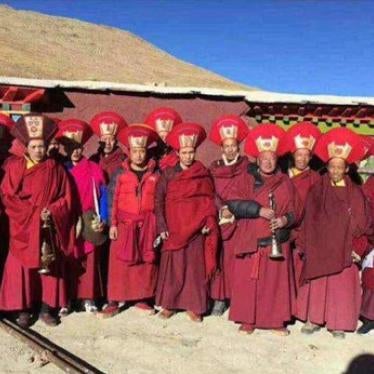(New York) - Human Rights Watch welcomed the visit to Vietnam of Abdelfattah Amor, the U.N. Special Rapporteur on Religious Intolerance, from October 19-28, but said the visit itself was not an indication of greater religious freedom.
We will be following very closely how the Vietnamese government reacts to the Special Rapporteur's findings," said Sidney Jones, Asia director of Human Rights Watch. "After a similar visit to China in 1994, Mr. Amor made a number of extremely useful recommendations to the Chinese government on how to further freedom of religion, not one of which was adopted. We hope that this government will be more responsive." Jones said official visits should not replace action by the Vietnamese government to change abusive policies and practices restricting religious freedoms.
In previous reports on other countries, Mr. Amor has looked at treatment of religious minorities, imprisonment of religious activists, restrictions on religious education and distribution of religious materials, and state controls on religious organizations. If his visit follows the pattern of previous missions, Mr. Amor will produce a report by early 1999 and present it to the U.N. Commission on Human Rights before the commission's annual meetings begin in mid-March.
The visit by the Special Rapporteur comes just after the release in September of at least eleven prominent dissidents and religious leaders in Vietnam, part of a broader amnesty involving more than 5,000 prisoners. Religious leaders who were released included prominent monks Thich Quang Do, Thich Tri Sieu, and Thich Tue Sy, all members of the banned Unified Buddhist Church of Vietnam (UBCV), as well as Paul Nguyen Chau Dat and Tadeo Dinh Viet Hieu, members of the Catholic Congregation of the Mother Co-Redemptrix. It is not clear what prompted the amnesties, but the Special Rapporteur's planned visit may have been a factor.
The Vietnamese government has not made public the full list of released prisoners, leading to some confusion as to who is still detained. Nevertheless, dozens of church leaders are known to remain in prison, under house arrest, surveillance, or in "administrative detainment" under Directive 31/CP, which authorizes detention without trial for up to two years by the Ministry of Interior.
Other violations of freedom of religion include the requirement that all religious activity be approved by the state, and restrictions on travel by religious leaders and the contents of their sermons and speeches.
In July 1998, the Politburo issued its first directive on religion, stating that the party's policy is to respect religious freedom, but to ban "superstitious practices." The directive does not, however, define "superstitious practices." It also prohibits the printing and distribution of Bibles, bans "excessive mobilization of the population," and threatens legal repercussions against those who abuse religion to cause social unrest or oppose the government.
The government turned down a request for a papal visit in August during the 200th anniversary of the sanctuary of the Notre Dame of La Vang in Quang Tri province. It also attempted to discourage citizens from other provinces from traveling to La Vang for this event. (Nevertheless, more than 60,000 Catholic pilgrims were able to attend, making it the largest religious gathering in Vietnam in decades.)
On the other hand, the government in March approved the Vatican's appointment of a new archbishop of Ho Chi Minh City, a position that had been left vacant for five years because of official rejection of an earlier nominee.
While information is too scarce to provide a definitive list of all religious dissidents currently in detention or under house arrest in Vietnam, they are believed to include the following:
Thich Huyen Quang, eighty-one, currently under house arrest in Nghia Hanh district in Quang Ngai province, is the Supreme Patriarch of the Unified Buddhist Church of Vietnam (UBCV), which is not recognized by the Communist Party. He has was first arrested in April 1977, then again in 1982 for protesting against the state-sponsored Vietnam Buddhist Church. From his forced exile in central Quang Ngai province, he issued a declaration in November 1993 calling for democratic reform and respect for human rights. In December 1994 he was rearrested on charges of organizing a UBCV flood relief operation in the Mekong Delta.
Thich Khong Tanh (Phan Ngoc An), formerly the head monk at the Lien Tri pagoda in Thu Duc, was detained on November 6, 1994 for his role as chairman of a UBCV flood relief effort. He was previously arrested by Ho Chi Minh City security police on October 2, 1992 for leaving his pagoda without a permit to travel the fifteen kilometers into the city. He was charged with "undermining the policy of unity" and "circulating anti-socialist propaganda" after police searched his room at the Lien Tri pagoda and confiscated letters by Thich Huyen Quang. Thich Khong Tanh had reportedly also been arrested in 1976 and imprisoned for ten years for writing a letter to the Prime Minister protesting the government's abolishment of a long-standing policy which exempted Buddhist monks from military conscription. He is currently detained in camp Z30A, Xuan Loc, Dong Nai province.
Thich Nhat Ban, arrested with Thich Khong Tanh on November 6, 1994 for his involvement in a UBCV planned flood relief effort, is currently detained in camp Z30A, Xuan Loc, Dong Nai province.
Thich Thien Minh is currently detained in camp Z30A, Xuan Loc, Dong Nai province.
Several leaders and lay followers of the Catholic Congregation of the Mother Co-Redemptrix, arrested in 1987, are currently believed to remain in prison, including Father John Bosco Pham Minh Chi, Brother Benedito Nguyen Viet Huan (Nguyen Thien Phung), Brother John Euder Mai Duc Chuong, and Brother Michael Nguyen Van Thin.
The Vietnamese government is said to be planning more releases by the end of this year.






